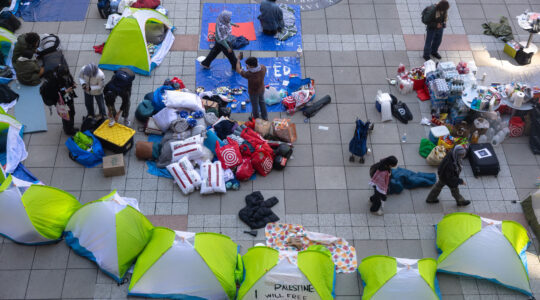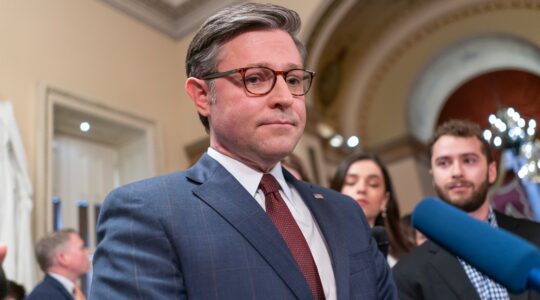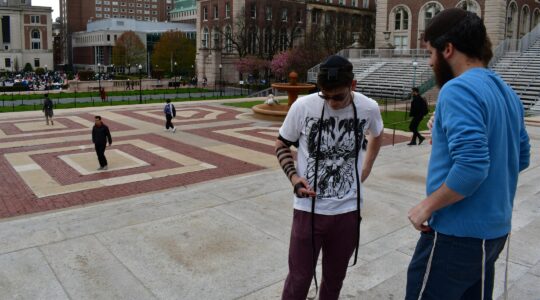Here’s the story:
NEW YORK (JTA) — The umbrella organization of the North American Jewish federation system has hired Jerry Silverman, a key player in raising tens of millions of dollars for Jewish summer camps, as its next president and CEO.
Silverman has been tapped to take the reigns at the United Jewish Communities, which serves as the North American arm of a federation system that raises and distributes about $3 billion annually from its general campaigns, endowments and special fund-raising drives. A former high-level executive at the Levi Strauss Corporation and at Stride Rite, Silverman will assume his new post Sept. 30, a month after the term of UJC’s current chief executive of the UJC, Howard Rieger, ends.
Since 2004, Silverman has served as the executive director of the Foundation for Jewish Camp, overseeing the growth of the organization’s budget from slightly more than $1 million per year to more than $22 million. At UJC, he faces a series of challenges, starting with a shrinking budget and increasing questions about the need for a national system.
“I am going into this really clearly with my eyes open,” he said “I will be doing an inordinate amount of listening as we really look to put our agenda together going forward.”
Federation campaigns across the country have been down or stagnating in recent years, a problem that has been exacerbated by the recession. In the past week, UJC officials said that they project a 13-percent decrease in the system-wide campaign this year, and the country’s biggest federation, the UJA-Federation of New York, which typically brings in around $150 million annually, said that its campaign in 2008-2009 was off by more than 11 percent.
The local federations and its umbrella has been in a constant struggle over the dues that individual federations pay to the UJC. In March, the federations mandated that the UJC reduce its budget from $37 million this year to $30.3, resulting in scores of layoffs.
Federations have long felt tension between having to satisfy their own philanthropic needs at home in their local communities and their obligation as members of the UJC system to dedicate large portions of their annual campaigns to the system’s overseas partners, the American Jewish Joint Distribution Committee and the Jewish Agency for Israel.
“All those federations are shareholders, and we have to ensure that for every dollar these shareholders invest in UJC, there is a true added value,” he said.
But, he said, the strength of the system is that it is a collective.
“During uncommon times and during challenging situations, it really gives us the opportunity to look at how we are doing things currently today and to look at the future and where we want outcomes to be and position us to be in a much stronger place in the future,” Silverman said. “We have to really look closer together to do things differently and really look at what are the great practices we have going already and to make sure we are sharing them.”
Read the rest here.





